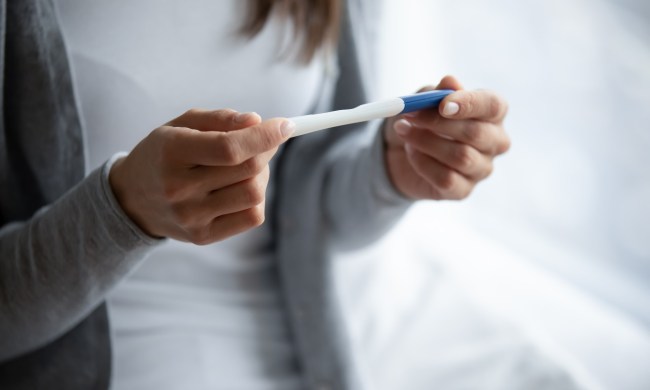For many people, the second trimester of pregnancy is a walk in the park. All the nausea and fatigue of the first trimester is history and the discomfort of the third trimester seems a world away. During the second trimester, moms-to-be generally have more energy and less concern about miscarriage. They can find out the sex of their baby if they want to, those first butterfly kicks are becoming more noticeable, and those pesky first-trimester mood swings will probably even out some.
Even though the second trimester is the golden time of pregnancy doesn’t mean there can’t be complications, however. Read on to learn the second-trimester symptoms and warning signs and what to look out for during the second trimester.
Bleeding
Some light bleeding or spotting is normal during any stage of pregnancy. Blood can be pink, red, or brown in color and usually results from cervical irritation from sex or a pelvic exam. If you begin to pass clots or the bleeding is accompanied by cramping, you should contact your health care provider.
Bleeding can be a sign of placental abruption, a condition where the placenta separates from the uterine wall too early, or preterm labor. Preterm labor refers to any labor experienced prior to the 38th week of pregnancy and can be caused by a number of issues.

Cramping
As your baby grows and moves, some abdominal discomfort is to be expected. If you notice that you are experiencing menstrual-type cramps that occur within a consistent pattern, you should speak with your physician. Contractions during the second trimester can feel like menstrual cramping and if they are accompanied by blood, mucoid discharge, or a gush of fluid, you could be going into labor.
Mucus
During pregnancy, your cervix is sealed with mucus to ensure the uterine environment isn’t contaminated. As your cervix dilates when you approach your delivery date, this mucus plug becomes dislodged and exits the body through the vagina. You will usually notice it in your underwear or when you wipe after using the restroom. The mucus plug is usually off-white and may have blood in it. It’s sticky and stringy and is usually around two inches long. Mucoid discharge during pregnancy isn’t uncommon, but the mucus plug is stickier and stringier than normal cervical mucus. If you notice a large amount of sticky mucus it could be a sign that your cervix has started to dilate and you should contact your health care provider.
Fluid Leakage
During gestation, your baby floats in a sac of fluid in your uterus and when delivery is close, this sac will rupture, releasing that fluid. If you notice fluid leaking from your vagina, even a small amount, it could mean your membranes have ruptured. Unlike popular myth, most women do not feel a gush of fluid that puddles at their feet when their membranes rupture. And during the second trimester, even a tiny pinhole leak could mean problems. If you notice that your underwear is consistently damp with a clear liquid, you might be experiencing preterm premature rupture of membranes (PPROM) which is considered an emergency. PPROM puts you at risk for preterm labor and uterine infection.
Though the second trimester is generally the easiest part of pregnancy, complications can and do arise. Being aware of changes and being proactive in reaching out to your health care provider can make all the difference in the world when it comes to maintaining a healthy pregnancy.



